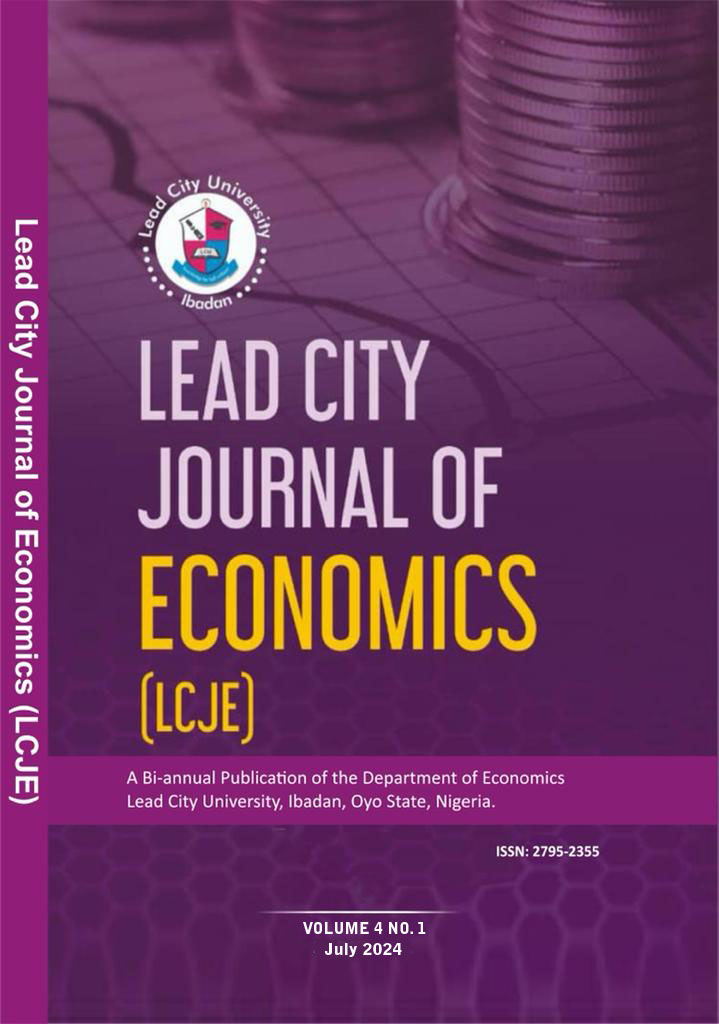Effect of Institutional quality on Globalization in Nigeria
Keywords:
Institutional quality, KOF globalization index, Nigeria.Abstract
This study investigates the effects of institutional quality on
globalization in Nigeria from 1985 to 2020. The Autoregressive
Distributed Lag (ARDL) bound estimation technique confirmed the
long run relationship between institutional quality and globalization in
Nigeria. The findings show that institutional quality has an adverse and
significant effect on globalization in the short run. This suggests that
initial efforts to improve institutional quality, such as anti-corruption
drives, stricter financial regulations, or enhanced governance checks,
act as a disruptive force to the established patterns of globalization.
Also, the long-run estimates indicate a negative impact of institutional
quality on globalization in Nigeria, although statistically insignificant
at the 5% level. It implies that the structure of Nigeria’s economy has
not fundamentally shifted as the country remains heavily dependent on
global oil markets, and its manufacturing and non-oil export sectors
are weak. The government should adopt a strategic and sequential
institutional reforms that rebrand Nigeria in the global arena and also
facilitate legitimate economic activity. This should include streamlining
customs and port administration to reduce bottlenecks in trade,
strengthening the financial sector regulators to build investor
confidence, and enhancing the capacity of the judiciary to efficiently
enforce contracts and resolve commercial disputes.

